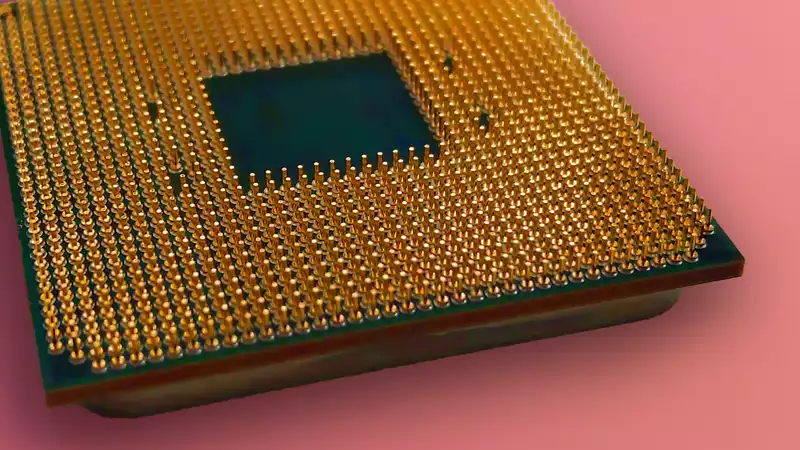If you've been using AMD chips for a while, you've probably bent a pin back into place once or twice. At least if you're clumsy (myself included). In a pin grid array (PGA) design, it's all too easy. However, according to the latest leaks, the AM5 will use a Land Grid Array (LGA) design.
According to a tweet from well-known leaker Executable Fix, AMD will finally move from PGA to LGA as it moves to AM5, the new socket set that will replace AM4. The new socket design will be LGA-1718 (the number of pins required for the package).
Also, the upcoming generation of AMD chips will support DDR5 and PCIe 4.0 on the 600 series chipsets.
For now, let's focus on the sockets: PGA often refers to processors with pins protruding from the underside of the chip that slot into motherboards with corresponding sockets; in LGA designs, instead, the connection points on the processor are arranged flat and aligned with the pins in the motherboard socket. aligned with the pins in the socket on the board.
In any case, you will have pins that are very bendable, if not fragile. However, in my opinion, it is much easier to bend the pins on the CPU.
The move to LGA may seem trivial, but the change will shake up AMD's desktop lineup AMD has long stuck to pin grid array (PGA) for its CPU packaging. If you go back to the original Athlon processors, you will find chip packages that are not much different from the current 16-core Ryzen 9 5950X. [But AMD is no stranger to LGA, as Epyc's SP3 sockets and Threadripper's TR4 and sTRX4 sockets are all LGA 4094 designs. Intel also uses LGA for the majority of its desktop and server chips.
Another common choice is ball grid array (BGA), which is widely used today, mostly in mobile devices. The reason it is less common in desktops is that in a BGA design, the chip is permanently soldered to the socket.
AMD has previously promised to continue to support AM4 sockets through 2020, and has since stuck with AM4 sockets in its desktop Zen 3-powered Ryzen chips. the future of AMD's Ryzen releases is still a bit hazy, but the company's next major architecture release (likely Zen 4) will likely come in the new AM5 socket.
While backward compatibility between AM4-compatible chips is not a sure thing, the move to AM5 will certainly rule out future upgrades to Zen 4 for gamers using 500-series motherboards.
Nevertheless, given AMD's track record, it is likely that AM5 will arrive before it is replaced by something even more attractive; AM4 has been around since 2016, and it is likely that AM5 will be the first to be released in the near future.


Comments